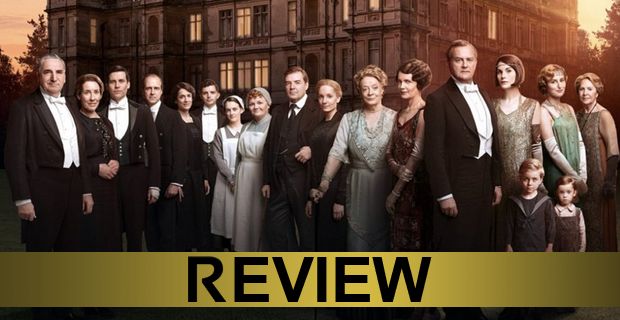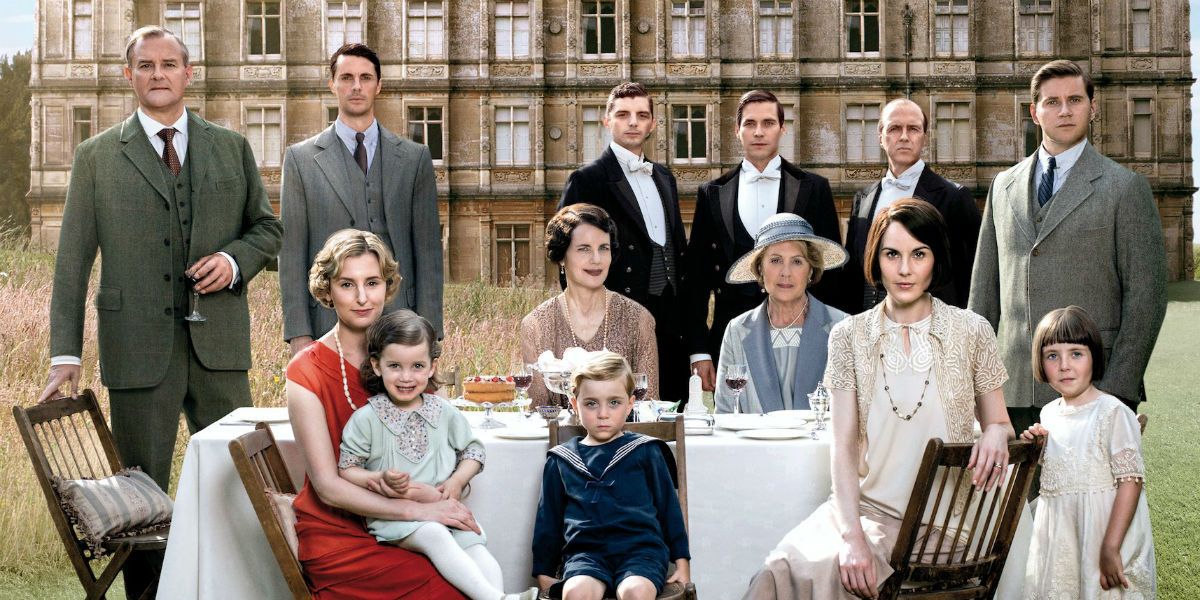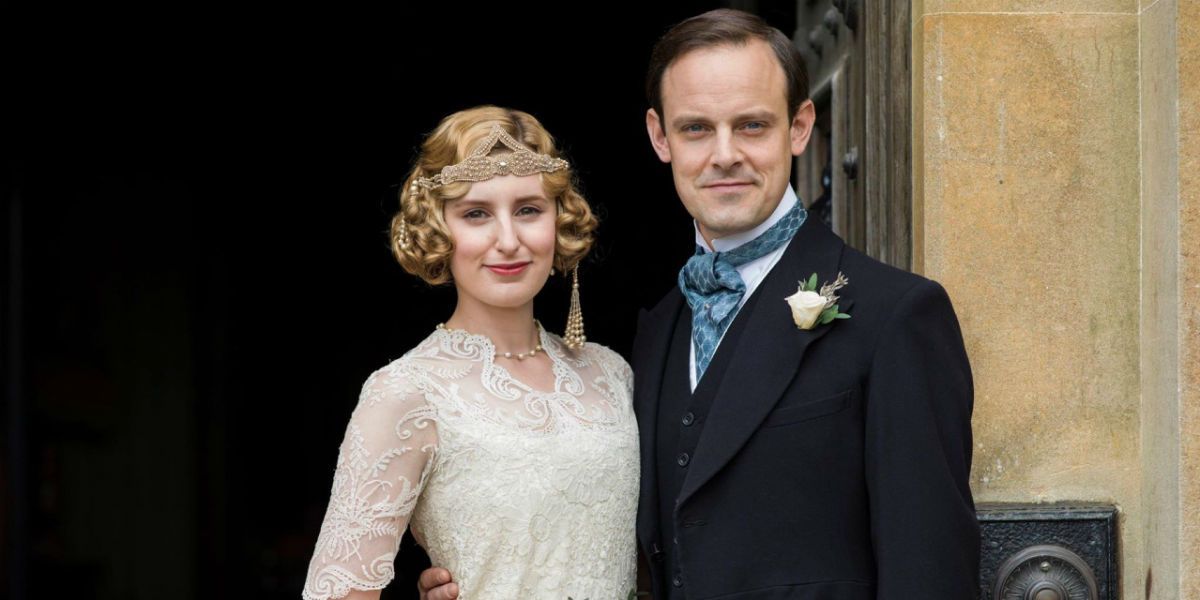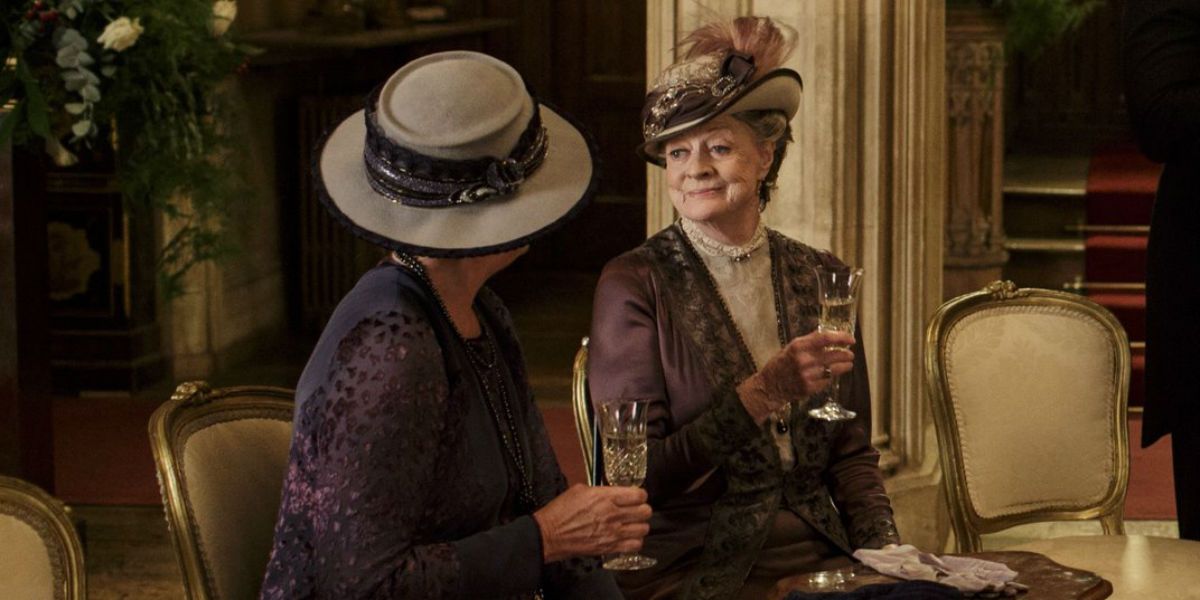[This is a review of Downton Abbey season 6, episode 9. There will be SPOILERS.]
–
Downton Abbey has been a window on a bygone era, a time riddled with change, though also filled will relics of the past. Over its six seasons, the Crawley family and its house full of servants endured 14 turbulent years: the turmoil of world war, the oncoming economic boom, and without question, a rapidly changing socio-political atmosphere. Yet, the Crawleys remain enshrined within their great home, somehow getting to retain the best of both worlds -- the trappings of high society, the glamour of wealth and "good breeding", while also being generally open-minded towards change, even if a character or two balks at first.
This has certainly been key to the show's appeal -- just about every character is given some redeeming quality, and the Crawley's especially represent an idyllic version of the upper-class family. And when it comes to ending what has been seasons of ups and downs for a group of generally good people, audiences want to see them rewarded with happy endings -- which Downton Abbey's series finale delivers on practically every front.
The series finale picks up events in the months following season 6's true finale (this episode is in fact the Christmas special) which saw Lady Mary finally give in to happiness and accept Henry Talbot's proposal, but also where she unleashed one of her most spiteful acts -- sabotaging Edith's chance at a happy and advantageous marriage with Bertie, now the illustrious Marquess of Hexham. Her dream of a happy marriage dashed, Edith entertains the idea of moving herself and Marigold to London where she may live out her years managing her magazine. And frankly, that'd have been a fine future and one that would have cemented Edith a true modern woman, but that's not how a series like Downton -- or woman like Edith, for that matter -- would want it.
In a move of making amends, Mary arranges for Edith and Bertie to meet again and they quickly rekindle their love and subsequently their engagement. The only hurdle remaining is Bertie's overbearing and moralistic mother, Mrs. Pelham, who is not expected to look kindly on Edith's out-of-wedlock daughter. But even by Downton standards the threat of her disapproval is quickly overcome when Edith bravely chooses to be forthcoming about Marigold's parentage, impressing Mrs. Pelham with her honesty and securing her approval. And with that their marriage moves forward without a hitch, forming the framework for the remainder of the episode and becoming almost something of running joke as just about everyone is shocked yet overjoyed that it can be said that Edith is finally truly happy.
Mary, too, has a bit of good news in that she and Henry are expecting, but this is downplayed and rightly so, as even Mary admits she doesn't want to outshine Edith -- at least not this once. As we leave the two Crawley sisters, both married off and secure in their futures, there is something akin to peace between them, a recognition that for as much as they may dislike each other they'll never be without the other, especially in times of need.
With Mary and Edith paired and happy, it seems only fitting that basically everyone else is given just as satisfying an end: Molesley becomes a teacher full time, and he and Ms. Baxter appear destined for a quiet but happy life; Isobel Crawley fights to remain part of and even save Lord Merton's life, and the two are married despite his son's protest; Daisy agrees to move in with Mr. Mason at the farm, begins reciprocating Andy's affections, and warms to the idea of Mrs. Patmore's interest in Mr. Mason; Henry and Tom go into business together, sharing their love of cars and finding their own identity separate from the Crawley name; Denker and Spratt continue their merry war, with the Dowager Countess again sticking up for her butler-turned-relationship-and-fashion-columnist; and Anna gives birth on New Year's Eve, literally bringing in the new as she and Bates can finally enjoy their life together.
Downton Abbey ties up a ridiculous number of lose ends with this finale, and even though not a single one could possibly be construed as unhappy, there are two which feel at least a little bittersweet. The first is the incredible marriage of Lord Grantham and Cora, which has withstood so very much and truly been the backbone of not only the family but also the series. There's no threat to their marriage, not really, though the show had been trying to set up Cora's new position at the hospital as one. Instead, what happens is a lovely and subtle transition of power, as Robert steps back from the estate and Cora takes on more responsibilities in town. Even Violet recognizes she's soon to be replaced by Cora as the reigning head of the family, and the final moment between the two matriarchs is sweet, though tinged with sadness.
Yet there's no better metaphor for the winding down of Downton's significance than Carson's failing health, as he begins showing unmistakable signs of "the palsy" (i.e., Parkinson's), soon rendering him unable to continue with his duties as butler. It's a sad turn of events, especially for Carson who held so much pride not only for the family and their home, but also the work he had carried out there for decades. But what it becomes is an opportunity, one that rewards Barrow's efforts, recognizing how he's grown and matured these 14 years, and lets Carson retain the dignity of his position.
In a way, welcoming Barrow as their butler and allowing Carson a position as overseer perfectly embodies what Downton Abbey has always been -- a celebration of an old way of life, while acknowledging change is inevitable. The residents and staff of Downton didn't always welcome change, but they certainly embraced it more than most. That may be because, as the world spins towards the modern age, Downton still manages to keeps its Old World charm and the Crawleys only adapt as they must. Still, viewers couldn't have asked for better hosts these past six seasons, and Downton Abbey's fond farewell is precisely that -- fond, of both its characters and their fans.
-




